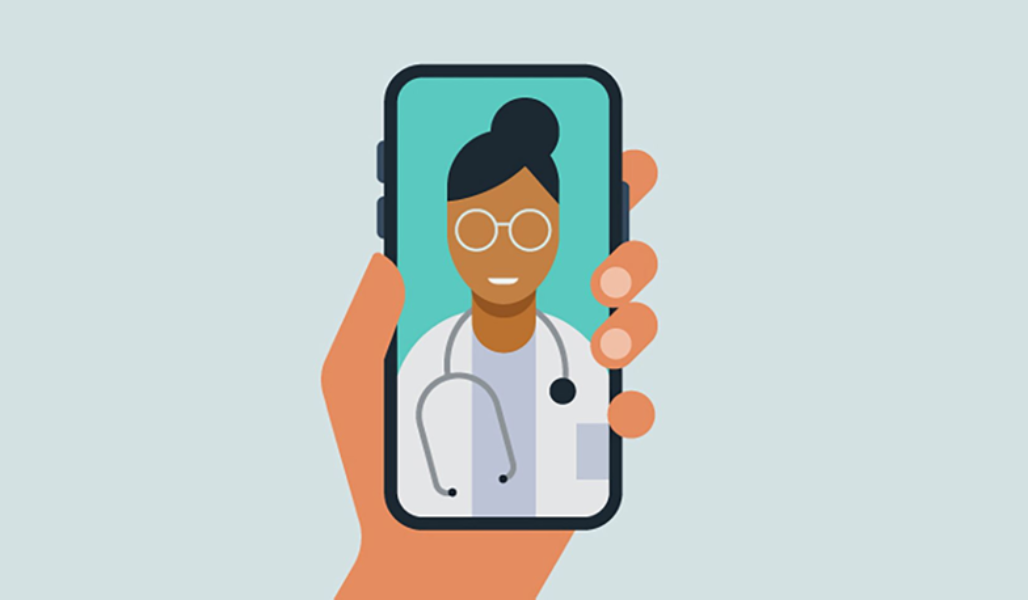
Trista Barlow Experiences Telehealth as a Provider and User
As a registered nurse at Marshfield Clinic Health Systems (MCHS) in Wisconsin, Trista Barlow sees how telehealth services have helped her patients receive quality healthcare services during the COVID-19 pandemic. And, as a mother of two children enrolled in counseling services, she has also been a consumer of telehealth services personally.

Photo description: Marshfield Clinic Health System
At Work
Barlow has been pleasantly surprised at the adaptability of Marshfield’s patients to virtual care.
“We had some concerns about our elderly population at the beginning,” Barlow said. “We definitely had some hiccups, but they ended up adapting really well. Some of our patients are much more comfortable using telehealth.”
In Wisconsin, psychiatrists are in short supply, which makes getting needed mental health services challenging for some. “Some of our patients might have to travel nearly two hours to see a psychiatrist,” Barlow said. Since regular follow-up appointments are required for prescription refills, this often caused a problem.
“When appointments had to be done in-person, some patients couldn’t afford the fuel or time off from work to travel to an appointment,” Barlow said. “With telehealth, those follow-up appointments are much easier, which has increased our medication compliance. With winter coming in Wisconsin, this will be an even larger issue.”

Photo description: Video visit
At Home
On a personal level, Barlow takes advantage of telehealth services as a parent as well. “Both my kids are enrolled in counseling services,” Barlow explained. “My husband and I are divorced, and he lives more than an hour away. I usually had to take time off work to bring the kids to their appointments, and my husband could only make some of them because of the distance. Telehealth makes it possible for all of us to call in.”
For example, Barlow’s teenage son can dial in from home, Barlow can call from work, and her ex-husband can connect from his military base at the same time. “It’s helpful when we can share both positives and concerns as a group,” Barlow said. “I can share what I’ve seen is going on at my house, and my ex-husband can share what’s happening at his. It helps us co-parent more effectively.”
MCHS is a member of the Program Advisory Council (PAC) of the Great Plains Telehealth Resource & Assistance Center (gpTRAC). gpTRAC helps organizations such as MCHS with training and educational support in establishing and maintaining telehealth programs.
